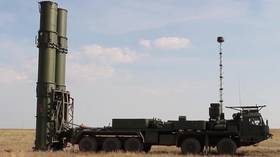ROAR: Russia prepares to meet climate challenge

As the Copenhagen Climate Change Conference failed to produce results, Russia is developing its own strategy in fighting the negative consequences of climate change.
Although there is no common forecast and the possible scenario is unknown, Russia should be ready for climate change, President Dmitry Medvedev stressed at the meeting of the Security Council on March 17.
Moscow will participate in international negotiations on a global climate agreement, he noted. But even in the absence of such an agreement, Russia remains committed to the strategy of reducing hydrocarbon emissions into the atmosphere, the president said.
The country’s Climate Doctrine was approved at the end of last year, and the government should draft the necessary regulations for implementing the doctrine by October 1, 2010.
Russia needs modern scientific research and forecasting capability to monitor and forecast climate change, the president said. “We need a single center and single research plan that includes forecasting national security threats and offering effective recommendations for adapting to climate change,” he noted.
Moscow has already done the first step toward minimizing the effect of global warming by approving the Climate Doctrine last year, Gazeta daily said. The government will adopt measures that should make it possible for different industries to adapt to new conditions, Minister of Natural Resources and Ecology Yury Trutnev told the daily.
The complex plan will include measures to prevent climate change and will deal with energy efficiency and the modernization. Other steps will concern adapting the economy to climate change.
Different industries may encounter both negative and positive changes, Trutnev said. For example, increasing water resources could bring more opportunities for developing hydroelectric engineering. Warming may be helpful for agriculture, Trutnev said.
On the other hand, natural disasters caused by climate change may damage the economy. Ministries and departments should propose measures for using advantages and minimizing possible risks, Trutnev said.
In April last year, the Ministry of Natural Resources and Ecology “was less optimistic” and prepared a report about possible “catastrophic consequences” of global warming for the planet, the paper said.
If ocean levels increased by 10 cm by 2050-2070, most parts of St. Petersburg and the Yamal Peninsula could be flooded, the report read. An increase of 20 cm could lead to flooding parts of Arkhangelsk and Murmansk regions and some other territories of the country, the document said.
Now the government is preparing a state program that will coordinate the activities of ministries and departments in preventing the negative effects of climate change, presidential adviser on the climate Aleksandr Bedritsky said.
Russia will have “all the pluses and minuses” of global warming as other countries, Moskovsky Komsomolets daily noted. The Security Council highlighted potential threats to things such as the economy, food supplies, social and energy security and threat to the quality of life, it added.
“Droughts, heavy showers, international conflicts over water resources and food, the destruction of buildings and services – such an almost apocalyptic picture was painted yesterday [at the Security Council meeting],” the paper said.
Forests could be used as first means in fighting the consequences of climate change, the daily noted. According to Trutnev, Russia may consider limiting timber exports by increasing duties if some countries will use “hydrocarbon protectionism against Russia.”
The minister referred to possible restrictions on Russian trade proposed by several Western states. The move is being explained by Moscow’s policy regarding greenhouse emissions.
Russia also “warned the West” on the issue of developing the Arctic region, Vzglyad.ru online newspaper noted.
As the competition over Arctic deposits increases, Medvedev made it clear that Moscow would resist the attempts of some countries to limit Russia’s access to the Arctic's mineral resources.
Stressing the need for a meteorological study of the Arctic region, Medvedev said it is “absolutely crucial for understanding the causes and consequences of climate change.” The government should propose steps “for the development of the Arktika multipurpose space system and establishing meteorological and climate monitoring subsystems,” Medvedev said.
Against the backdrop of global warming and the drastic reduction of the size of the Arctic, the competition over the resources of this region has stepped up recently, said Dmitry Abzalov of the Center for Political Conjuncture.
The issue may be solved within the next two or three years, the analyst told Actualcoment.ru website. Moscow has serious competitors, and Norway, Denmark, Canada and the United States have strong positions, he added.
Denmark has a good chance at the UN commission that decides “what belongs to whom,” Abzalov said. The United States “has allocated huge financial recourses,” and the US companies are interested in developing the region, he noted.
Canada has extensive experience in working in the Arctic Circle, while Norway has experience of developing shelf, the analyst stressed. Norway is decreasing its presence in the North Sea and trying to step up its efforts in the Arctic, he added. Meanwhile, all the countries involved have conducted expeditions to the region.
However, Russia is preparing to meet climate challenges not limited to just the Arctic region. The country needs an energy-efficient economy, modern green technology and a modern energy sector, Medvedev said. “No matter how the situation develops, it is in Russia’s environmental and economic interests to pursue this strategy,” he stressed.
Sergey Borisov, RT












